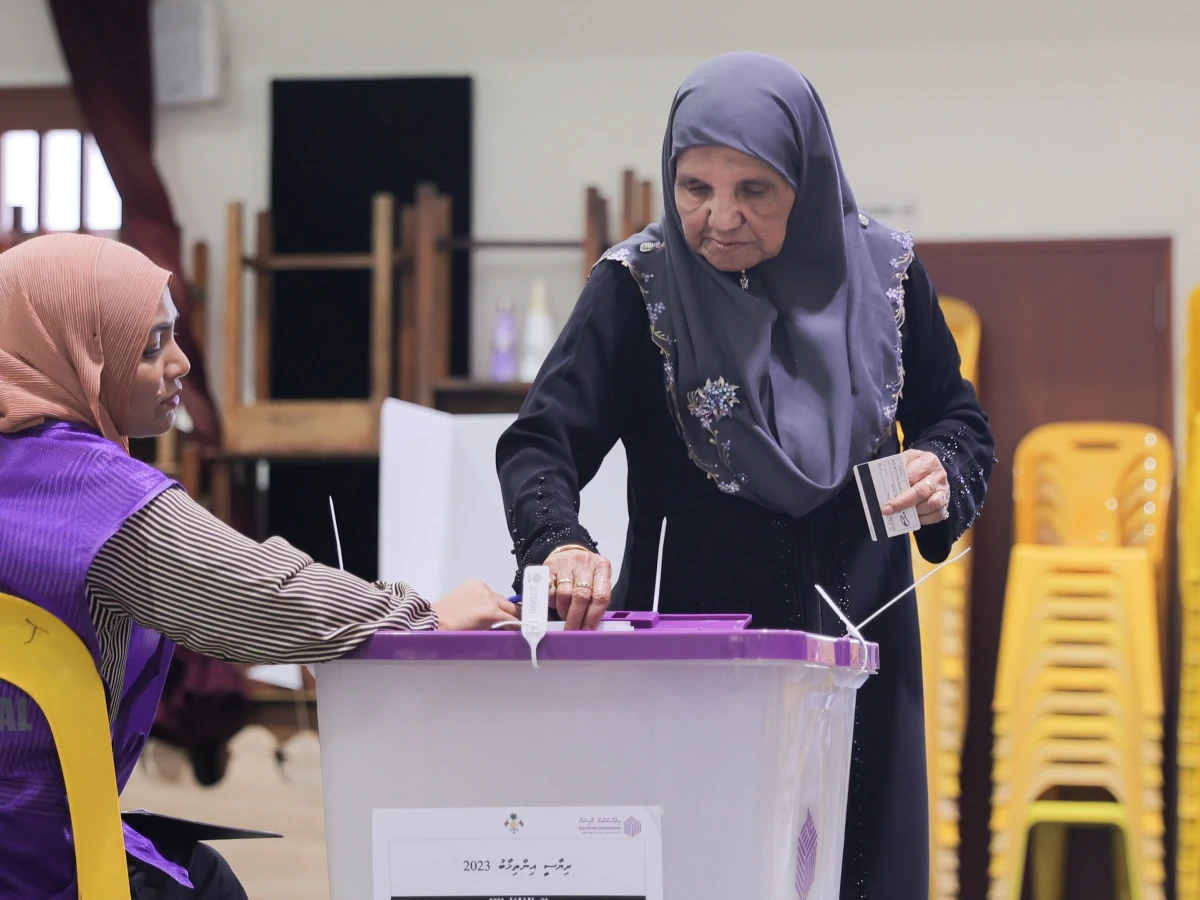
India-China influence takes centre stage in Maldives pres runoff
In the initial round of voting on September 9, which featured eight candidates, Solih secured 39% of the vote, trailing Muizz's 46%.
Voting kicked off on Saturday in the Maldives' presidential runoff, and the contest has become a proxy battle for influence between India and China in this small island nation.
Incumbent President Ibrahim Mohamed Solih, known for his pro-India stance, faces stiff competition from main opposition PPM-PNC's Mohamed Muizz, the mayor of capital Male, who advocates for stronger ties with China. With neither candidate securing a majority in the first round earlier this month, the race has now entered the decisive runoff.
The election campaign has centred on several critical issues, including a housing crisis in the densely populated capital and the country's depleting dollar reserves. Various parties have put forth competing proposals to address the "de-dollarisation" of trade.
However, the dominant concern throughout the campaign has been the influence of India and China on the Maldives, strategically located 450 miles south of India and along vital Indian Ocean shipping routes.
China and India have a history of vying for influence in their neighbouring countries. China, thanks to its extensive financial resources and investments through the Belt and Road Initiative, initially held an advantage. Nevertheless, India has been assertive in the region in recent years.
India extended substantial financial assistance to Sri Lanka during its economic crisis last year and has expanded its presence and projects in the Maldives since President Solih's election in 2018, ending the pro-Beijing Abdulla Yameen's tenure.
The opposition coalition, including Mohamed Muizz's People's National Congress, has made criticising the current government's growing ties with India a central focus of their campaign. They have employed slogans like "India Out" and criticised Solih's decision to host a small contingent of Indian military personnel on the island.
President Solih, while welcoming Indian investment and development aid, has denied that these partnerships have come at the expense of relations with other nations. He emphatically refuted claims about Indian military activities in the Maldives during an election debate, stating, "There is no Indian military personnel conducting military work in the Maldives."
In the initial round of voting on September 9, which featured eight candidates, Solih secured 39% of the vote, trailing Muizz's 46%.
President Solih has faced internal challenges, including a public split within his Maldivian Democratic Party (MDP). His childhood friend, Mohamed Nasheed, a former president, formed his own party before the election, receiving 7% of the vote and potentially becoming a kingmaker in the runoff. However, Nasheed, now the speaker of parliament, is torn between his long-standing ties with India and his fractured relationship with President Solih, which he believes is irreparable.
Nasheed's party has announced its decision to "refrain from supporting either candidate" in the runoff. The election results are expected to be announced on Saturday evening.




